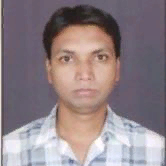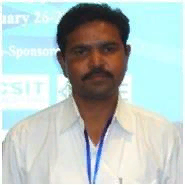International Journal of Image, Graphics and Signal Processing (IJIGSP)
IJIGSP Vol. 9, No. 3, 8 Mar. 2017
Cover page and Table of Contents: PDF (size: 1675KB)
Efficient Model for Numerical Text-To-Speech Synthesis System in Marathi, Hindi and English Languages
Full Text (PDF, 1675KB), PP.1-13
Views: 0 Downloads: 0
Author(s)
Index Terms
NTTS-System, Hybrid Speech Synthesis, Digital Signal Processing, Prosodic Analysis, verall Quality Issue
Abstract
The paper proposes a numerical TTS-synthesis system in Marathi, Hindi and English languages. The system is in audible forms based on the sounds generated from several numeric units. A hybrid technique is newly launched for a numerical text-to-speech technology. The technique is divided into different phases. These numerical phases include pre-processing, numeric unit detection, numeric and speech unit matching; speech unit concatenation and speech generation. In order to enhance the syntactic generation of audible forms in three languages, two discipline tests were performed. The prosodic test has been obtained for evaluating on the statistical readings. Overall quality issue (OQI) test is a subjective test which is performed by various persons who are aware of three mentioned languages. On the basis of two distinct parameters of OQI test, all scores are positively provided. Initial parameter compromises with listening quality. The second parameter, awareness rate improves a level of the intelligibility. The ultimate satisfactory results of artificial sound generation in three unrelated languages were touched to humankind voice.
Cite This Paper
G. D. Ramteke, R. J. Ramteke,"Efficient Model for Numerical Text-To-Speech Synthesis System in Marathi, Hindi and English Languages", International Journal of Image, Graphics and Signal Processing(IJIGSP), Vol.9, No.3, pp.1-13, 2017. DOI: 10.5815/ijigsp.2017.03.01
Reference
[1]William A. Ainsworth, "A System for Converting English Text into Speech", IEEE Transactions on Audio and Electro-Acoustics, Vol. Au-21, No.3, pp. 288-290, Jun 1973.
[2]Katsanobu Fushikida, Yukio Mitome and Yuji Inoue, "A Text To Speech Synthesizer for the Personal Computer", IEEE Transactions on Consumer Electronics, Vol. CE-28, No. 3., pp. 250-256, August 1982.
[3]Fu-Chiang Chou, Chiu-Yu Tseng and Lin-Shan Lee, "A Set of Corpus-Based Text-to-Speech Synthesis Technologies for Mandarin Chinese", IEEE Transactions on Speech and Audio Processing, Vol. 10, No. 7, pp. 481 - 494, 2002.
[4]Marc Schroder, Jurgen Trouvain, "The German Text-to-Speech synthesis System MARY: A tool for Research Development and Teaching", International Journal of Speech Technology, 6, pp.365-377, 2003.
[5]Bhuvana Narasimhan, Richard Sproat and George Kiraz, "Schwa-Deletion in Hindi Text-to-Speech Synthesis", International Journal of Speech Technology, Vol. 7, pp. 319-333, 2004.
[6]Diemo Schwarz, "Concatenative sound synthesis: The early years", Journal of New Music Research, Vol. 35, No. 1, pp. 3-22, 2006.
[7]Jerorne R. Bellegarda, "Unit-Centric Feature Mapping for Inventory Pruning in Unit Selection Text-to-Speech Synthesis", IEEE Transactions an Audio, Speech and Language Processing, Vol. 16, No. 01, PP. 74-82, Jan-2008.
[8]S. D. Shirbahadurkar, D. S. Bormane, "Speech Synthesizer Using Concatenative Synthesis Strategy for Marathi language (Spoken in Maharashtra, India)",International Journal of Recent Trends in Engineering, Vol. 2, No. 4, pp. 80-82, 2009.
[9]Pamela Chaudhury, Madhuri Rao, KVinod Kumar, "Symbol Based Concatenation Approach for Text to Speech System for Hindi using Vowel Classification Technique", IEEE, 2009 World Congress on Nature & Biologically Inspired Computing (NaBIC 2009), pp. 1082-1087, 2009.
[10]Naim R. Tyson and Ila Nagar, "Prosodic rules for schwa-deletion in hindi text-to-speech synthesis", International Journal Speech Technology, Vol. 12, pp. 12-25, 2009.
[11]Junichi Yamagishi and Keiichi Tokuda, "Robust Speaker-Adaptive HMM-Based Text-to-Speech Synthesis", IEEE Transactions on Audio, Speech and Language Processing, Vol. 17, No. 6, pp. 1208-1230, August 2009.
[12]Aimilios Chalamandaris, Sotiris Karabetsos, Pirros Tsiakoulis and Spyros Raptis, "A Unit Selection Text-to- Speech Synthesis System Optimized For Use with Screen Readers", IEEE Transactions on Consumer Electronics, Vol. 56, No. 3, 1890-1897, Aug. 2010.
[13]Muhammad Masud Rashid, Md. Akter Hussian, M. Shahidur Rahman, "Text Normalization and Diphone Preparation for Bangla Speech Synthesis", Journal of Multimedia, Vol. 5, No. 6, pp. 551-559, 2010.
[14]Gerry Kennedy, "Benefits of Text to Speech Software", Australian Journal of Learning Disabilities, Vol. 3, No. 3, pp. 31-34, 2010.
[15]D. J. Ravi and Sudarshan Patilkulkarni, "A Novel Approach to Develop Speech Database for Kannada Text-to-Speech System", International Journal on Recent Trends in Engineering & Technology, Vol. 05, No. 01, pp. 119-122, 2011.
[16]S. S. Nimbhore, G. D. Ramteke and R. J. Ramteke, "Pitch Estimation of Devnagari Vowels using Cepstral and Autocorrelation Techniques for Original Speech Signal", International Journal of Computer Applications (0975-8887), Vol. 55, No. 17, pp. 38-43, October 2012.
[17]Lakshmi Sahu and Avinash Dhole, "Hindi & Telugu Text-to-Speech Synthesis (TTS) and inter-language text Conversion", International Journal of Scientific and Research Publications, Vol. 2, Issue 4, pp. 1-5, April 2012.
[18]Catalin Ungurean, Dragos Burileanu and Mihai Surmei, "Statistically Augmented Preprocessing/ Normalization Module for a Romanian Text-to-Speech System", IEEE 7th Conference on Speech Technology and Human-Computer Dialogue (SpeD), pp. 1-6, 16-19thOct 2013.
[19]Mukta Gahlawat, Amita Malik and Poonam Bansal, "Natural Speech Synthesizer for Blind Persons Using Hybrid Approach", 5th Annual International Conference on Biologically Inspired Cognitive Architectures, Vol. 41, pp. 83-88, 2014.
[20]G. D. Ramteke and R. J. Ramteke, "Text-To-Speech Synthesis of Marathi Numerals", International Journal of Engineering and Technical Research (IJETR), Vol 7, Issue 7, pp. 360-367, 2015.
[21]Sunil S. Nimbhore, Ghanshyam D. Ramteke and Rakesh J. Ramteke, "Implementation of English-Text to Marathi-Speech (ETMS) Synthesizer", at IOSR Journal of Computer Engineering (IOSR-JCE), Vol. 17, No. 1, pp. 34-43, 2015.
[22]Soumya Priyadarsini Panda and Ajit Kumar Nayak, "An efficient model for text-to-speech synthesis in Indian languages", International Journal Speech Technology, Vol. 18 , No. 3, pp. 305-315, January 2015.
[23]Maile Timm and Krista Uibu, "Development of Student Text Comprehension and Language Semantics in Primary School", Elsevier Proceeding Social and Behavioral Sciences, Vol. 191, pp. 793-800, 2015.
[24]Sumit Soman and B. K. Murthy, "Using Brain Computer Interface for Synthesized Speech Communication for the Physically Disabled", Elsevier International Conference on Information and Communication Technologies (ICICT 2014), 46, pp. 292-298, 2015.
[25]G. D. Ramteke and R. J. Ramteke, "Text-To-Speech Synthesizer for English, Hindi and Marathi Spoken Signals", at British Journal of Applied Science & Technology, ISSN: 2231-0843, Vol-15, Issue-3, pp. 1-16, Mar 2016.
[26]Saleh M. Abu-Soud, "ILA Talk: A New Multilingual Text-to-Speech Synthesizer with Machine Learning", International Journal Speech Technology, vol. 19, no.1, pp. 55-64, Mar-2016.
[27]J. Sirisha Devi, Dr. Sirnivas Yarramalle and Siva Prasad Nandyala, "Speaker Emotion Recognition Based on Speech Features and Classification Techniques", International Journal Image, Graphics and Signal Processing, 7, pp. 61-77, Jun-2014.
[28]G. D. Ramteke and R. J. Ramteke, "Text-To-Speech Synthesizer based on Phonetic and Voice Processing in Marathi and Hindi Language", Asian Journal of Mathematics and Computer Research, ISSN: 2395-4205 (P), ISSN: 2395-4213 (O), vol. 14, issue 3, pp. 247-266, Dec-2016.

